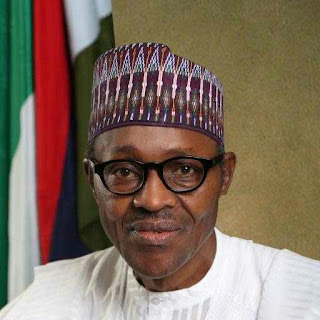Nigeria's wealth in few hands - President Muhammadu Buhari.
President Muhammadu Buhari yesterday declared that it was difficult for Nigeria to develop when the nation’s wealth was in the hands of few individuals.
The Federal Government recently disclosed that 55 Nigerians, including 15 former governors, four ex-ministers and other serving and former public office holders stole N1.3 trillion in eight years.
The president, who spoke yesterday at the National Political Summit, organised by Save Democracy Group Africa in Abuja, said that a situation where politicians divert resources meant to provide drugs in the hospitals, schools for the children and construction of motorable roads, would not promote growth and development.
“We are all witnesses to some of the revelations of what some of the political holders did in the last administration; corruptly handled billions of dollars and funds meant to procure arms and equipment for the territorial integrity of Nigeria; equipment, including protective weapons and vehicles for the brave young men and women who our nation sent to battle.”
He described the theme of the summit, which is “2015 elections; consolidating the gains and building positive and sustainable democracy in Nigeria” as timely.
The president added that every step to balance a stable democracy was worth it.
Buhari, who was represented by Vice-President Yemi Osinbajo, described political leadership as a priesthood of sort, where leaders were expected to make sacrificial service to the people in place of personal ambition.
He said that democracy cannot heal the defects in human condition if politicians continued to steal the resources that were meant to improve standard of living of the people.
“But let me say that moral leaders are not born. They lived with the worst amongst us and came to an understanding of the responsibility placed upon him or her by virtue of political leadership and determined to choose the course of moral and exemplary leadership,” he said.
According to the president, leaders of the nations of the world that have managed to have a decent existence had to conquer the base and selfish desire to use power for personal gains.
He added that to address the deadly manifestation that was often seen in Africa and Nigeria, political leaders should look beyond democracy.
“My support for sustained dialogue amongst political stakeholders and key actors in our country will help in speeding up the political evolution of our country, grow our politics, building understanding and definitely help our people,” he added.
Buhari noted that while democracy was essential because it ensures that people are given a voice in the choice of their leaders that can be voided by corrupt practices and purchase of votes of the poor.
“My challenge to these distinguished bodies here is to seek answer to the question on how to ensure leadership in Nigeria and indeed Africa is altruistic, selfless and indeed committed to the common goal that will suit the people.
“How do we find a consensus as to the minimum and standards of the people by leadership?”
President of the Senate, Bukola Saraki, said the change demanded by Nigerians during the 2015 general elections has its own consequences.
According to him, the victory of the All Progressives Congress (APC) came at a time five major development challenges were confronting the nation from every side.
“From our depleting revenues and dwindling economic outlook as a result of falling oil prices to the massive infrastructure deficit, insecurity, unemployment, corruption and terrorism all congregating forcefully to dent our resolve to build a nation of our dreams,” Saraki said.
He, however, said these manifeschallenges might be the necessary catalyst and an opportunity to think outside the box and shape a new Nigeria nation built on a more solid economic and political base.
“We must then use our new found opportunity to attack the basic structural weaknesses and problems in our economy through measures to increase productivity, savings and investments.
“There is enough data to show that Nigeria can live in prosperity after oil; our agriculture potentials, solid mineral deposits, innovation industry and entertainment industry all show how diversification is already deepening the foundations of our economy,” he said.
Speaker of the House of Representatives, Yakubu Dogara, said the legislature has often intervened at the critical moments in the life of the nation through legislations and resolution to steer the ship of state aright.
According to the Speaker, the legislature in Nigeria has played a positive role towards electoral reforms and the quest for credible elections.
“It has used its legislative authority to stabilise elections. It has always provided the required legal framework for the conduct of elections in Nigeria.
“It passed the 2002, 2006, 2010 Electoral Acts to aid conduct of elections. The legislature led the charge in the amendment of the Constitution to usher in the independence of INEC,” he said.
“The National Assembly played one of its greatest stabilising roles in Nigeria’s democracy during the period of national emergency occasioned by the ill-health of late President Musa Yar’Adua.
“The legal logjam occasioned by the non-transmission of presidential authority to the then Vice President, Goodluck Jonathan to assume duties as acting president created a vacuum without a constitutional provision or precedent to fall back on,” Dogara added.

No comments:
Post a Comment